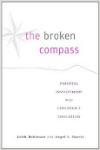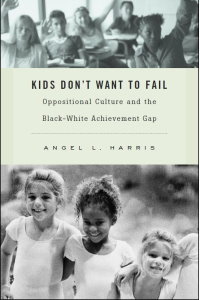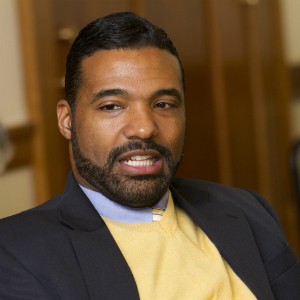Angel Harris Speaker Biography
Social Inequalities, Policy and Education speaker,
Professor of Sociology and African-American Studies at Duke University
Angel Harris wants to change the way people think about the academic achievement gap across racial and ethnic groups in the United States – an issue that he understands intimately, having struggled to make it through high school himself. After facing many challenges and overcoming social and economic obstacles, Harris went on to pursue higher education. In 2013, Harris joined Duke University as a Professor of Sociology and Afican American Studies.
Background and Education
Angel Harris grew up in downtown Brooklyn, NY and was raised by his grandparents after his mother passed away at an early age. When he was growing up, Harris didn’t have a car, lived in low-income housing and never left the immediate Brooklyn area until high school when he attended a STEM institute. He struggled and failed both science and math in high school. At the time, he never thought about post high school education and his career goals were to work in the funeral industry and become an embalmer. At the urging of friends, he decided to apply to a handful of college and was accepted to Grambling State University in Lousiana.
After earning his bachelor’s degree in psychology at Grambling State, Harris went on to receive his master’s degree in sociology at Kansas State University and his Ph.D. in public policy and sociology from the University of Michigan. After one year as an assistant professor at the University of Texas-Austin, in 2007, Harris joined the faculty at Princeton University. He served as Professor of Sociology and African American Studies and his research interests include social inequality, policy, and education. Harris also served as a Faculty Associate of the Office of Population Research, the Center for Research on Child Well-being, and Center for Migration and Development at Princeton.
Academic Profession at Duke University
In 2013, Harris accepted a position as the Professor of Sociology and African American Studies at Duke University. His work focuses on the social psychological determinants of the racial achievement gap. Harris examines the factors that contribute to differences in academic investment among African Americans, Latino/as, Asian Americans, and Whites. Harris also studies the impact that adolescents’ perceptions of opportunities for upward socio-economic mobility have for their academic investment, and the long-term effects of youths’ occupational aspirations both within the United States and Europe.
Media Appearances and Publications
Harris has appeared in several interviews to discuss race, culture and education including Talk of the Nation on NPR, The Daily Show with Jon Stewart, and The Washington Post among many others. Harris has written two books through Harvard University Press: Kids Don’t Want to Fail: Oppositional Culture and the Black-White Achievement Gap and Raising Learners: Parental Involvement and School Achievement (2011) and The Broken Compass: Parental Involvement with Children’s Education (2014).
Angel Harris Speaking Topics
Social Psychological Determinants of the Racial Achievement Gap
Harris discusses the factors that contribute to differences in academic investment among African Americans, Latino/as, Asian Americans, and Whites. Harris also touches on the impact that adolescents' perceptions of opportunities for upward socio-economic mobility have for their academic investment, and the long-term effects of youths' occupational aspirations both within the United States and Europe.
What Works To Close The Education Gap
It's a persistent and troubling problem: the gap between white students and students of color in academic achievement. There are many theories about how to resolve these disparities, from interventions with parents, increased accountability for teachers, school programs and testing, and others. Angel Harris examines the factors that contribute to differences in academic investment among African Americans, Latino/as, Asian Americans, and Whites, and what can be done.
Probability v. Possibility: Pursuing Goals Without Losing Sight of Reality
Angel Harris Books

The Broken Compass: Parental Involvement with Children’s Education
Purchase Book

